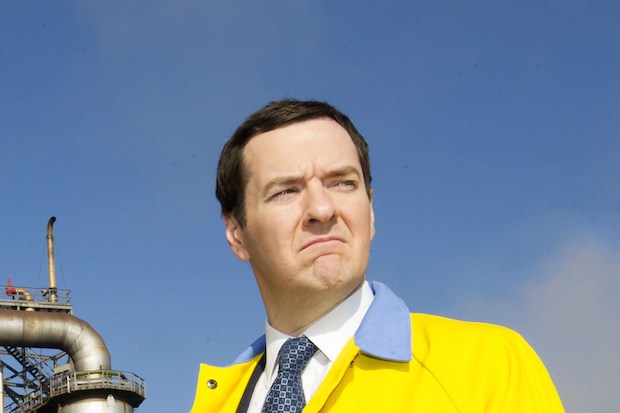The Bank of England’s inflation report will be published later this morning, which will reveal how strong the bank believes the recovery to be. All eyes will be on its estimate of the remaining ‘slack’ in the economy, which will govern policy on interest rates. The bank’s Monetary Policy Committee has already said that the bank may have to raise rates earlier than expected if strong growth is creating inflationary pressure. City analysts appear to be working on the basis that rates will increase in the first quarter of next year; but there are rumours that the decision might have to be brought forward to the last quarter of this year, such is the speed of growth.
There was a time when it was assumed that interest rates would not rise before the general election, so there has been little consideration, at least on Fleet Street, of how such a decision might be sold to the public in the prelude to an election. The obvious route to take is that an increase in interest rates is a reflection of Britain’s renewed economic strength; it is an endorsement of long-term government policy and the recovery, as well as being a blessed relief for beleaguered savers and pensioners (who are, of course, likely to vote). But such an endorsement does not mean that the recovery is secure. The bank is adamant that any rise in rates will be modest and gradual; the bank forecasts that inflation will remain around the 2 per cent benchmark for a couple of years, through a period of what the OECD describes as ‘above-trend’ growth. This approach to interest rates allows George Osborne to have his cake and eat it.
A more competent opposition, with confidence in its own thinking, might attack Osborne over interest rates, arguing that the lack of room for manoeuvre is evidence of Britain’s inherent vulnerability: proof that the recovery is volatile and that the economy will not return to ‘situation normal’ under Conservative stewardship. It is, of course, extraordinary to keep interest rates rooted to the floor. And that is not the only radical economic instrument that Osborne has deployed. The pension reforms at the last Budget, although welcome in many respects, were further proof of SNAFU and fiscal weakness. As Fraser put it on Budget day, ‘Osborne is, quite literally, banking on a pensioner spending splurge’. On the basis of Osborne’s policies, one might say that the British economic system cannot support the British people.
Instead, the opposition has chosen to make a tactical play on house prices; the FT quotes Ed Balls calling for action on Help to Buy. Property prices in London and the south east are, perhaps, out of control; but, once they are stripped out of the national figures, the rate of increase in England and Wales is around the 5-6% mark. How many voters are going to object to that? Any decision on restricting mortgage lending will be taken by the Bank of England’s Financial Policy Committee and is likely to be modest in scope, which is a fact that doesn’t lend itself to grand headlines and game-changing tactical operations in Westminster. Every day in every way, Ed Miliband’s position on the economy is getting weaker.






Comments